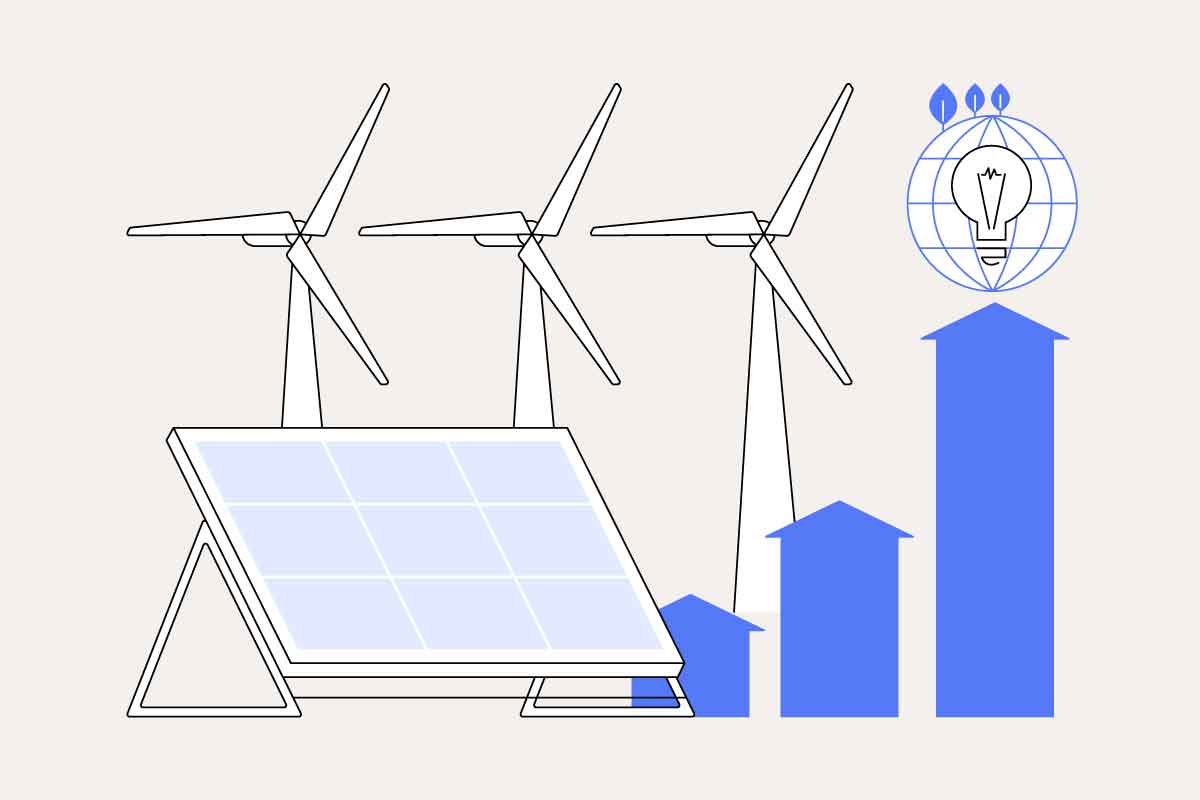Renewable energy is no longer just a sustainability buzzword — it’s becoming a practical way for UK businesses to reduce costs, meet carbon targets, and build a positive reputation. Whether through on-site generation or green energy tariffs, renewables can have a direct impact on your bottom line and long-term resilience.
Financial impact of renewable energy
- Lower running costs – installing solar panels, heat pumps, or biomass systems can cut reliance on expensive fossil fuels.
- Price stability – renewable tariffs often provide greater protection against volatile wholesale gas and oil prices.
- Return on investment – while upfront costs for on-site renewables can be high, savings and government incentives (such as tax reliefs and grant schemes) can deliver strong long-term returns.
Environmental impact
- Lower carbon footprint – switching to renewables helps businesses reduce greenhouse gas emissions, supporting the UK’s net-zero targets.
- Regulatory compliance – renewable use may help meet reporting requirements under schemes such as SECR (Streamlined Energy and Carbon Reporting).
- Sustainability goals – many companies now publish ESG (Environmental, Social and Governance) reports, where renewables play a key role.
Reputational benefits
- Customer perception – consumers are increasingly drawn to businesses that demonstrate green credentials.
- Investor confidence – many investors prioritise sustainability when assessing long-term risk.
- Competitive edge – being seen as environmentally responsible can differentiate your business in crowded markets.
Practical considerations for businesses
- Upfront costs – solar panels, wind turbines, or heat pumps require significant initial investment, though prices are falling.
- Space and suitability – not all premises are suited to on-site renewables, especially in urban areas.
- Maintenance – while many systems are low-maintenance, they still require ongoing care to remain efficient.
- Green tariffs vs. self-generation – smaller businesses often benefit from renewable tariffs offered by suppliers, while larger firms may invest in their own generation capacity.
Final verdict – How does renewable energy affect a business?
Renewable energy affects businesses in multiple ways: reducing costs, improving sustainability, and enhancing reputation. For some, it’s a strategic investment with measurable financial returns. For others, simply choosing a renewable tariff helps align with customer and regulatory expectations. In either case, renewables are set to play a bigger role in shaping how UK businesses operate in the years ahead.
FAQ
Yes. While upfront costs for on-site systems can be high, long-term savings on bills and protection from fossil fuel price volatility often outweigh the investment. Green tariffs can also be competitively priced.
The most common options are solar panels, heat pumps, biomass boilers, and renewable electricity tariffs from suppliers. Larger firms sometimes explore wind generation or combined heat and power (CHP) systems.
Absolutely. Many SMEs choose renewable tariffs from suppliers, while others install small-scale solar or heat pump systems. Even modest steps can lower carbon emissions and energy costs.
Yes. Businesses may qualify for tax relief, capital allowances, or grant funding schemes. Support changes over time, so it’s important to check the latest government programmes.
Customers, investors, and partners increasingly favour businesses with strong sustainability commitments. Demonstrating renewable energy use in marketing or ESG reports can boost credibility and competitiveness.


